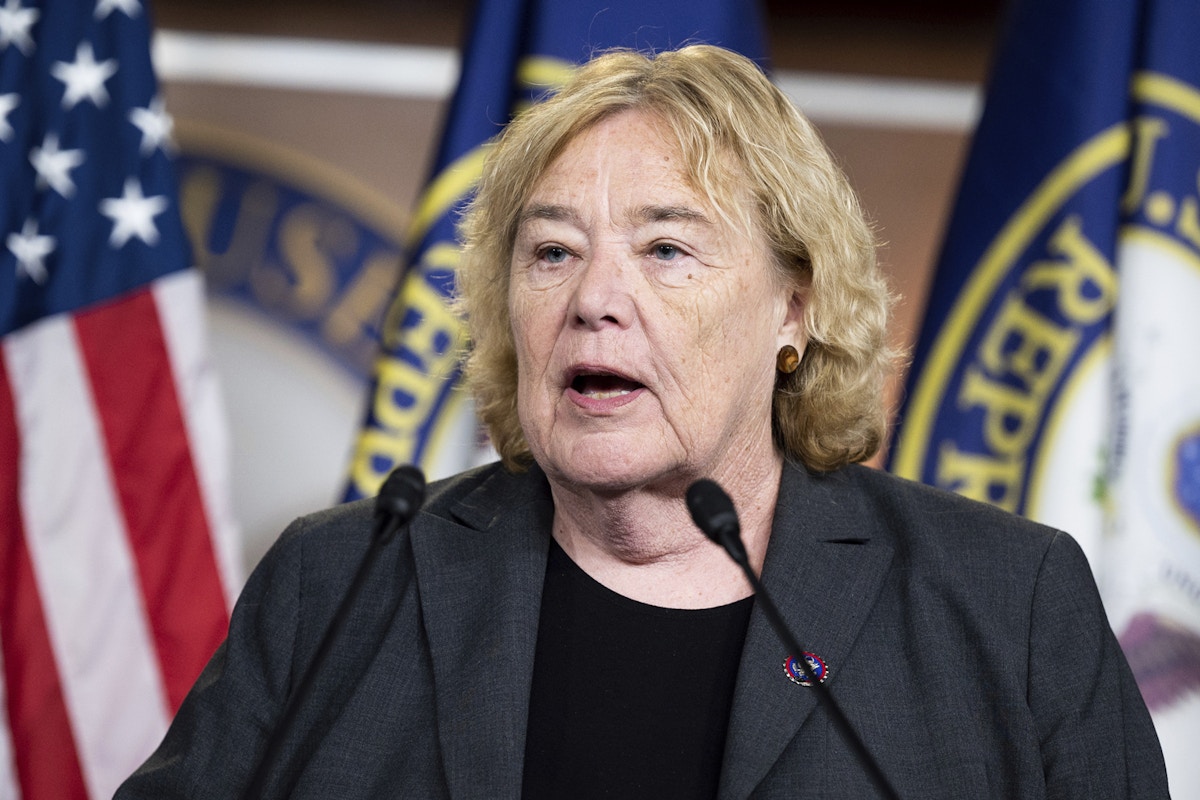
In a huge win for surveillance reformers, the House Rules Committee agreed on Wednesday morning to another full chamber vote on a bipartisan proposal that would limit the federal government’s warrantless searches of Americans’ private data. The vote, expected later in the day, will now test rank-and-file lawmakers’ willpower to break with congressional leaders, who’ve killed similar measures in years past, and safeguard their constituents’ Fourth Amendment rights after the Donald Trump presidency brought greater attention across the political spectrum to the surveillance state’s excesses.
A group of Democrats and Republicans in the House of Representatives — Zoe Lofgren, D-Calif.; Pramila Jayapal, D-Wash.; Thomas Massie, R-Ky.; and Warren Davidson, R-Ohio — introduced the proposal as an amendment to the Justice Department’s Fiscal Year 2022 appropriations bill. The amendment would ban the government from using funds to conduct searches of Americans’ digital communications without court approval. Such extrajudicial monitoring became authorized in 2008 via the Section 702 provision of the FISA Amendments Act, which bolstered spying authorities first laid out in the 1978 Foreign Intelligence Surveillance Act.
Although FISA is intended to target foreigners, federal intelligence agencies have nevertheless used it to search through Americans’ private data. In April, the Foreign Intelligence Surveillance Court publicly released an opinion that found agents with the Federal Bureau of Investigation made hundreds of queries through collected documents using the names and identifiers of Americans who, for example, applied to participate in the FBI’s “Citizen Academy.”
With bipartisan support, the House already passed similar amendments to Defense Department appropriations bills in 2014 and 2015 to close the Section 702 loophole, but they were ultimately excluded from the final legislation during conference negotiations with the Senate. Lofgren, Massie, and others put forward the proposal again in more recent years, but it failed to gather majority support.
“What we’ve seen over and over again is that folks like Adam Schiff, folks like Nancy Pelosi, folks like Mitch McConnell are so deeply committed to maintaining the surveillance state and avoiding even the most modest reforms that they’ve effectively, from on high, scuttled these attempts at reform,” said Evan Greer, director of digital rights group Fight for The Future.
But activists are hopeful this year will be different. Greer said demands are especially high on Democrats after last summer’s George Floyd protests, which highlighted the disproportionate targeting of surveillance programs on Black and brown communities. Trump’s Justice Department also secretly spied on journalists’ communications, and Greer expects more revelations of abuses during his presidency to come out in the years ahead.
Republicans are also feeling the pressure to tackle surveillance reform. Although the Trump administration embraced federal law enforcement’s extensive powers to track journalists, the former president oversaw a potentially transformative shift in right-wing opinion by fomenting populist resentment against government surveillance when it suited his interests. Trump’s attacks on the FBI for wiretapping his 2016 campaign, and even Fox News host Tucker Carlson’s recent lamentations against alleged National Security Agency spying, may result in more conservative legislators voting to close the Section 702 loophole.
“There’s no reason to think we’ve lost any Democrats on this issue, but it is very clear that we’ve won a whole boatload of Republicans,” said Sean Vitka, policy counsel at Demand Progress, an internet advocacy group. “It’s very plausible that 100 Republicans have moved into an opposed-to-FISA stance across the board.”
Even if the House overwhelmingly votes in favor of the amendment, it will still have to gain the support of conference negotiators to be included in the final appropriations bill. Vitka is hopeful that may happen this year, since Senate Appropriations Committee Chair Patrick Leahy, D-Vt., is a stronger proponent for reform than past committee chairs. Leahy, along with senators like Oregon Democrat Ron Wyden and Utah Republican Mike Lee, has been a top surveillance critic in recent years.
Despite the new political tide, champions of the amendment will still face the usual private sector companies and government agencies that want to leave Section 702 untouched. As Greer noted, surveillance is big business for contractors, and even if congressional leaders feel the pressure from a large vote tally and conference negotiators, they still may cave to unsubstantiated claims that intelligence agents make about the national security dangers of reform.
“There’s just huge pressure always from the intelligence community, who just absolutely refuse to acknowledge the harms and abuses and will just always go to politicians at the top and basically say, ‘if you limit in any way anything that we can do, the next 9/11 is going to be your fault,’” Greer said, “even though there’s zero evidence to suggest that these massive government surveillance programs ever prevented a single terrorist attack or saved a single human life.”
If the measure fails to make it into the final justice appropriations bill, Vitka suggested activists could push to include it in the Fiscal Year 2022 defense spending bill, as Lofgren and her colleagues have attempted in the past. He said the outcome of this year’s fight will help set the stage for a much larger battle in 2023, when the 2008 measure authorizing Section 702 is set to expire.
“The goal is to make sure it is not reauthorized without major reform,” Vitka said.
This content originally appeared on The Intercept and was authored by Sara Sirota.